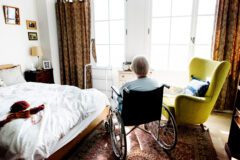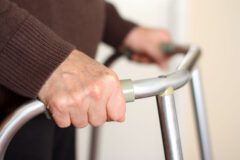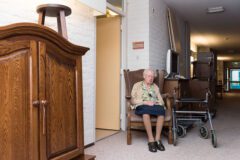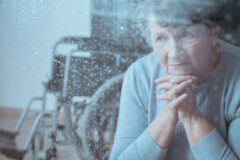Who is Liable for a Nursing Home Fall?
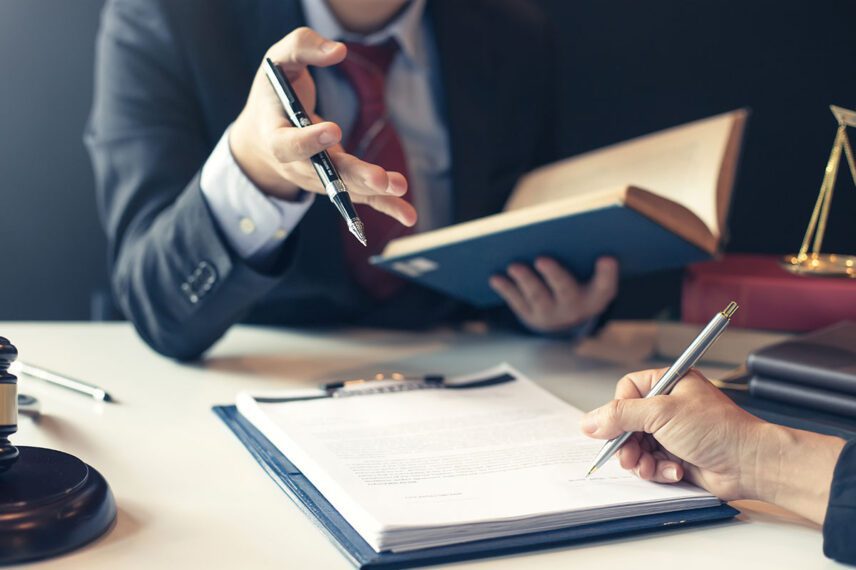
Nursing home abuse and neglect are far too common, and they’re sadly something millions of elderly patients suffer from each year in nursing homes across America. Unfortunately, when falls do occur in nursing homes, it’s often the result of negligence or improper training of staff members.
Falls in the elderly are extremely dangerous due to the increased possibility of bone fractures and breaks due to reduced bone density as the body ages. So what happens when a nursing home resident experiences a fall? And who, exactly, is responsible? The answer is that it depends on the situation and a variety of other factors; however, it is always important to consult with a lawyer to determine the strength of your legal case.
Standard of Care
By law, nursing homes are required to provide the proper care that enhances patients’ quality of life and adequately tends to their daily needs. They must also have an appropriate and safe design, construction, and equipment of their facility for their residents. By maintaining a certain standard of care, a facility should protect residents against accidents that could jeopardize their health.
How Common Are Nursing Home Falls?
Nursing home falls are exceptionally common. In fact, the CDC reports that around 300,000 elderly people are hospitalized for falls each year. It’s estimated that 1 out of every 5 falls results in serious injury to the victim—with 2,000 of those being fatal.
Additionally, about one-quarter of these falls occur due to hazardous conditions of the property, including:
- Wet Floors
- Bad Lighting
- Defective Wheelchairs or Assistive Walking Devices
- Improper Bed or Wheelchair Height
- Shoes That Do Not Fit Correctly
Other Factors That Increase Fall Risk
The elderly have a higher probability of falls than the rest of the population, which can be due to underlying factors including:
- A History of Previous Falls
- Limited Mobility
- Muscle Weaknesses
- Vitamin D Deficiency
- Medication Side Effects
- Environmental Hazards
Falls are considerably more dangerous for elderly patients due to age and fragility. When an elderly patient breaks a bone, it takes more time to heal than a younger person would. This can be further complicated by pre-existing medical conditions such as osteoporosis, a weakened immune system, etc.
How Should Nursing Homes Protect Against Falls?
It’s essential to understand how a nursing home facility should handle falls once they occur. Preventing and protecting against falls is critical to ensuring the health of all residents, so a good facility should have a protocol in place, including:
- Removing any obstacles in the way of residents from the facility
- Providing wheelchairs, walkers, and canes to residents
- Encouraging movement in residents to improve strength
- Ensuring residents have access to handrails in their bedrooms and bathrooms
- Monitoring and supervising residents who need assistance with walking
- Lowering beds and toilets as needed
- Examining any falls and protecting against factors that may have contributed to the fall
- Ensuring staff has received training for proper bed and wheelchair transfers
- Providing hip pads to protect against hip fractures
- Using gait belts to aid with movement, if necessary
- Suggesting corrective lenses for patients who may have diminished vision
While it’s unrealistic to expect nursing homes to protect against falls one hundred percent of the time, they can take extra measures and precautions to prevent the majority of them from happening.
Can You Sue for Nursing Home Falls?
If the nursing home facility failed to take proper precautions to prevent a fall, then yes, you can sue for damages. Additionally, if the nursing home staff failed to:
- Provide appropriate supervision and assistance
- Train their staff members
- Medicate the resident correctly
- Remove environmental hazards that led to the fall
- Abide by the instructions given by the patient’s medical doctor
Conclusion
Falls can be a scary experience with a long road to recovery for the victim. While falls are not entirely preventable, there is a standard of care that nursing home facilities should provide to prevent falls from occurring.
If your loved one was injured due to negligence by the nursing home facility, you might be eligible for compensation—including medical bills, rehabilitation costs, emotional suffering, reduced quality of life, and other damages. The first step in filing a successful claim is to hire an attorney with experience in nursing home abuse.

